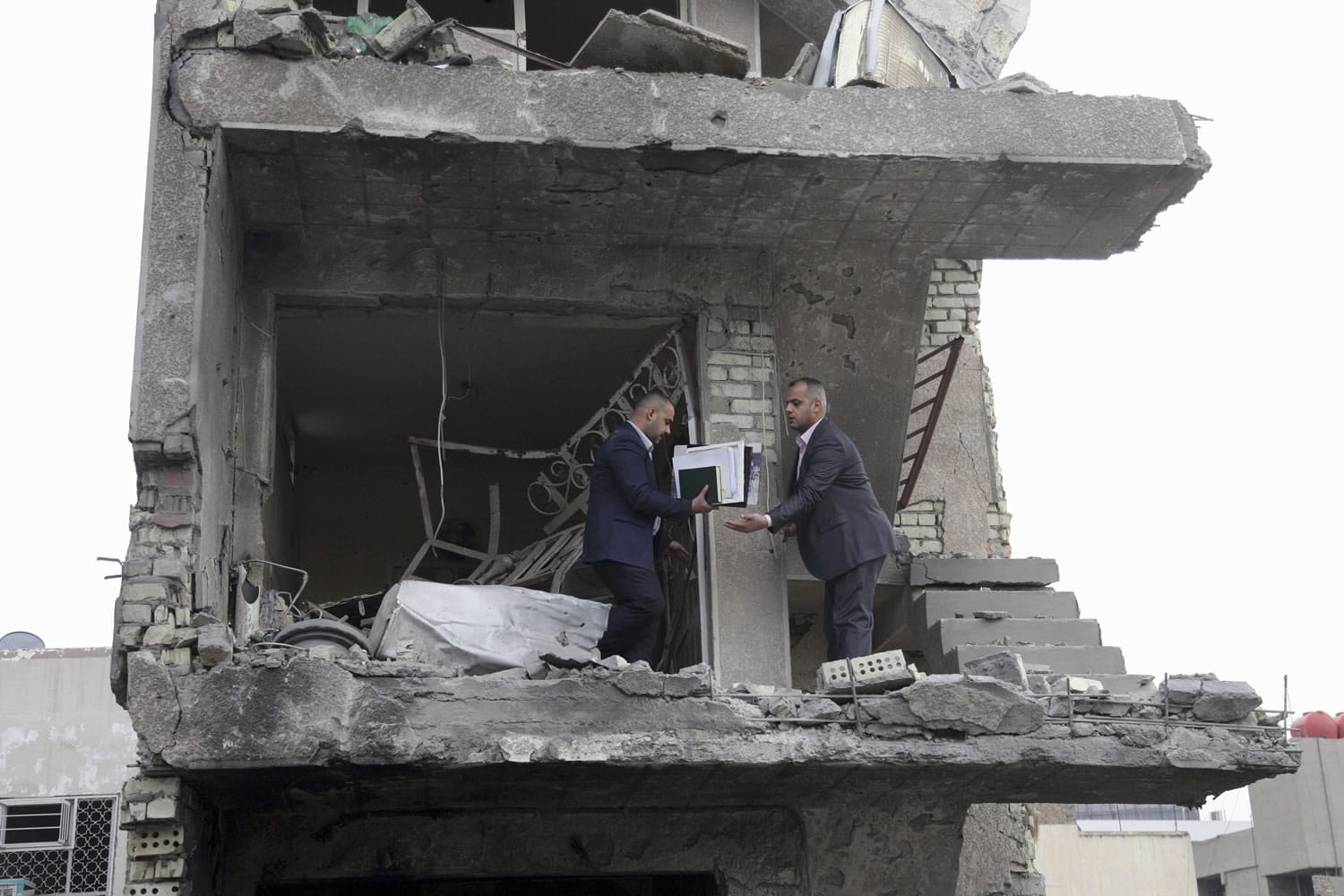BAGHDAD — Deadly attacks in Baghdad and a nearby town have shattered the relative calm far from the front lines of the war against the Islamic State group, raising concerns that the extremists may focus once again on attacking civilians after a string of battlefield losses.
In recent months, Iraqi and Kurdish forces backed by U.S.-led airstrikes have forced IS out of Sinjar in the north and the provincial capital of Ramadi west of Baghdad.
But the extremist group has proved resilient after previous defeats, often seizing territory on other frontiers of its amoeba-like caliphate. In the days after IS fighters were driven out of Ramadi, the group launched a coordinated assault on the western town of Haditha, which was repulsed by Iraqi forces.
On Monday, the Sunni extremist group went after softer targets in Baghdad and the town of Muqdadiyah to the northeast, with attacks that appeared to be aimed at killing Shiite civilians and aggravating sectarian tensions — a strategy pursued with horrifying results by the group’s predecessor, al-Qaida in Iraq.
Gunmen targeted the entrance to the Jawhara mall in a mainly Shiite neighborhood of Baghdad late Monday with a car bomb and a suicide bomber before storming in and opening fire. They killed 18 people and wounded more than 50 before Iraqi forces landed on the roof and battled their way inside, killing two attackers and arresting another four. A separate car bomb elsewhere in the city killed five people and wounded 12.
Later that night, back-to-back suicide attacks on a cafe frequented by government-allied Shiite militiamen killed at least 24 people and wounded 52 in the Shiite-dominated mixed town of Muqdadiyah, about 60 miles northeast of Baghdad. The Islamic State group on Tuesday claimed both major attacks.
Angry Shiite mobs responded to the Muqdadiyah bombings by attacking several Sunni mosques, completely destroying two of them and killing an imam, said Sheikh Abdul-Latif al-Himaim, Iraq’s head of Sunni Religious Endowments. “Organized gangs were behind the attack (on the mosques), seeking to inflame sectarian tensions,” he said.
The attack and the violent response recalled the darkest days of Iraq’s sectarian fighting in 2006 and 2007, when tens of thousands of Shiites and Sunnis were killed in revenge attacks.
“These attacks are part of a deliberate campaign to undermine the strength of the Iraqi security forces,” said Patrick Martin, an Iraq analyst at the Institute for the Study of War in Washington, D.C.
“These are not isolated incidents,” he said. “All these attacks are part of the same campaign by ISIS to essentially force Iraqi security forces to respond and prevent them from conducting forward operations. It’s aimed at undermining their strength.”
The U.N. envoy to Iraq, Jan Kubis, called on all sides to “refrain from being drawn into a cycle of reprisals” and warned that the attackers seek to take Iraq “back into the dark days of sectarian strife.”
The government announced that IS had been driven from the Diyala province a year ago, but the group has continued to carry out attacks in the area. Pro-government Shiite militias led much of the fighting against IS in Diyala, and today have a major role in securing the province.
The area around the Jawhara mall in Baghdad was placed on lockdown after the attack. Residents got their first look at the damage on Tuesday morning, finding streets littered with glass and rubble.
Iraq’s Prime Minister Haider al-Abadi toured the site on Tuesday, calling the assault a “desperate attempt” by the militants to retaliate after the loss of Ramadi and saying Iraq would “spare no efforts” in expelling them from the country.
Many residents, however, were still in a state of shock.
“In the last few months everything was so calm, but last night hit everyone as a complete surprise,” said Ahmed, a recent university graduate who works in a clothing shop. He asked that his last name not be published for fear of reprisals. “No one was expecting this,” he said.



